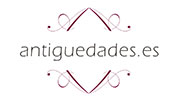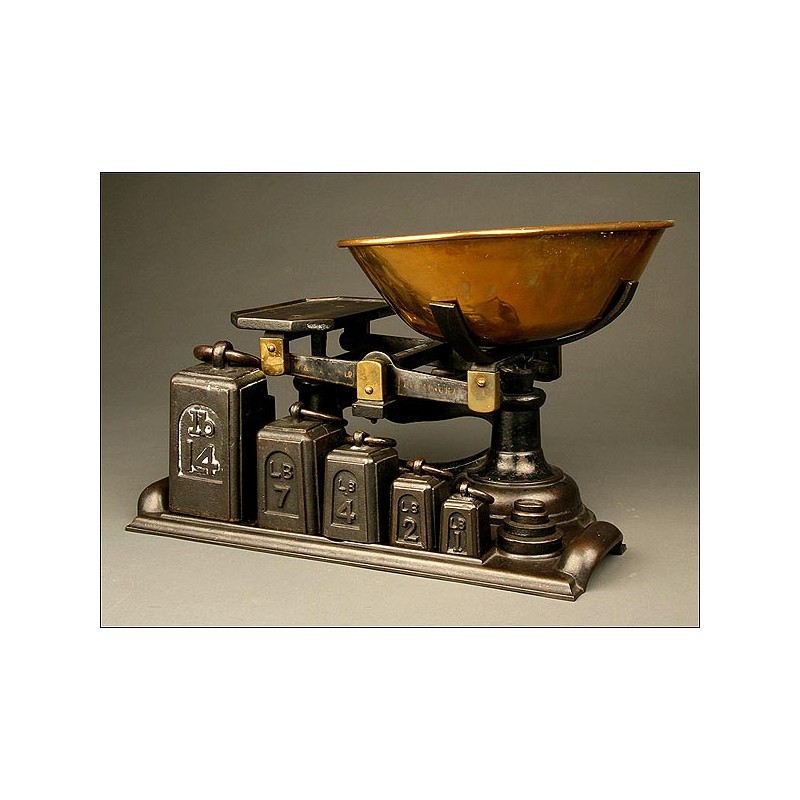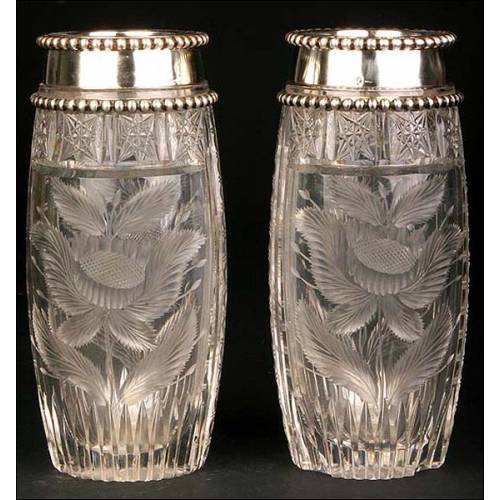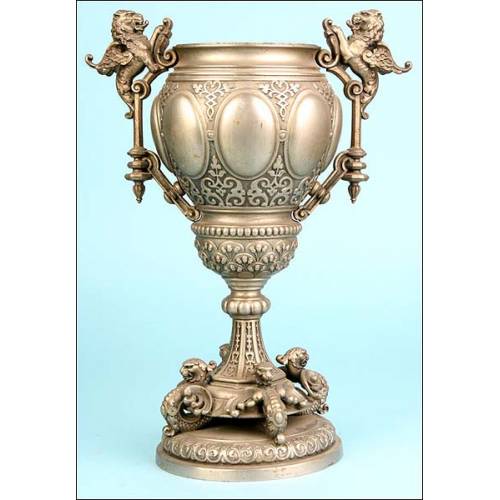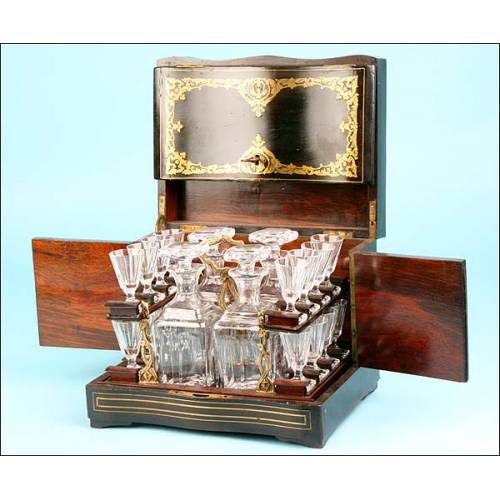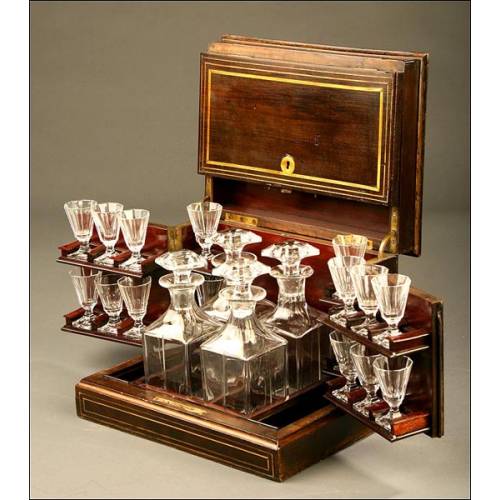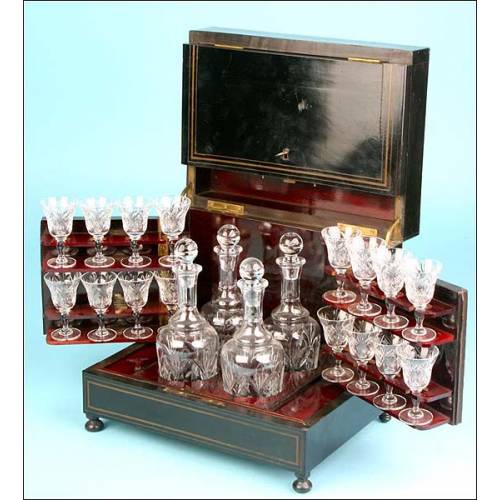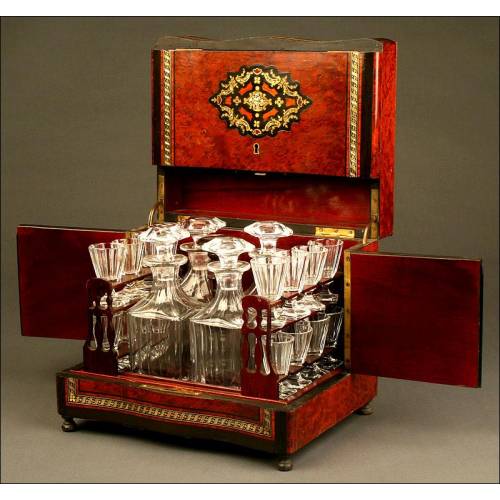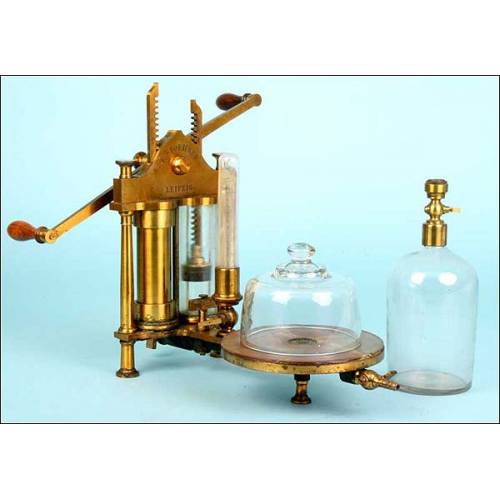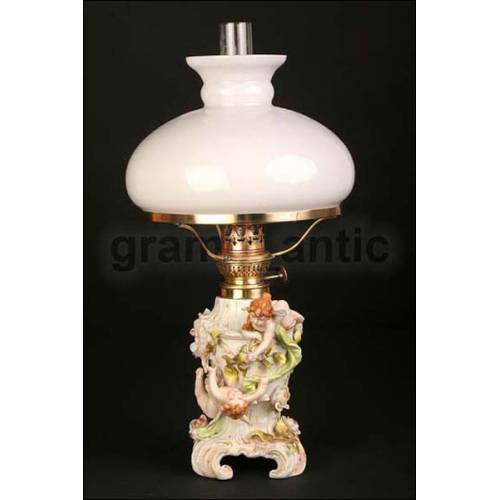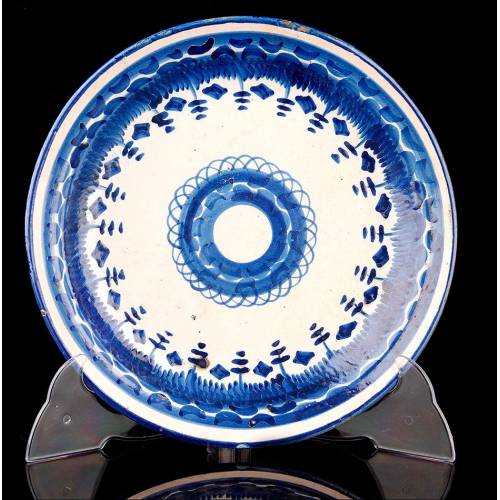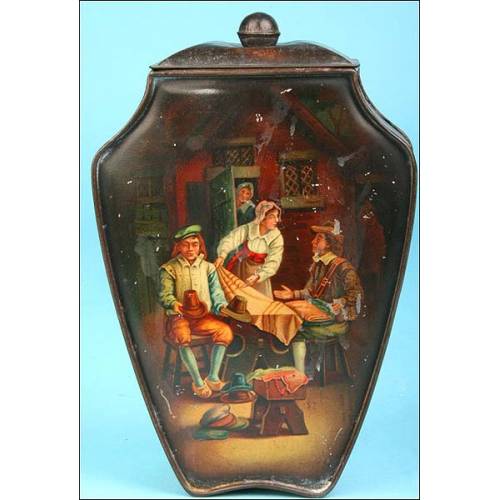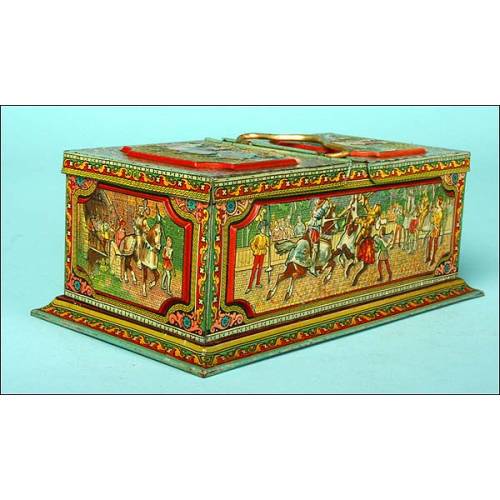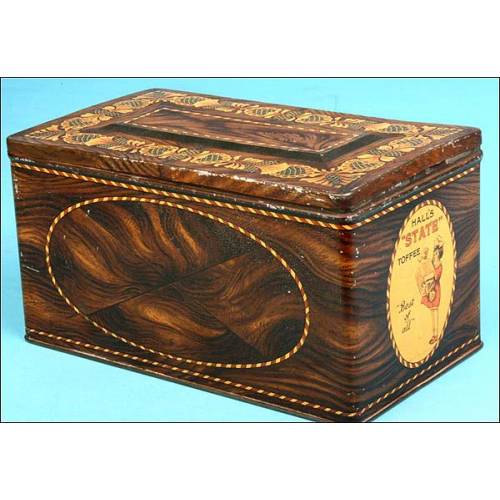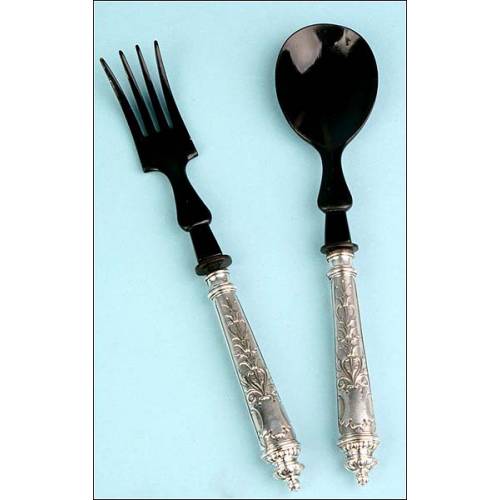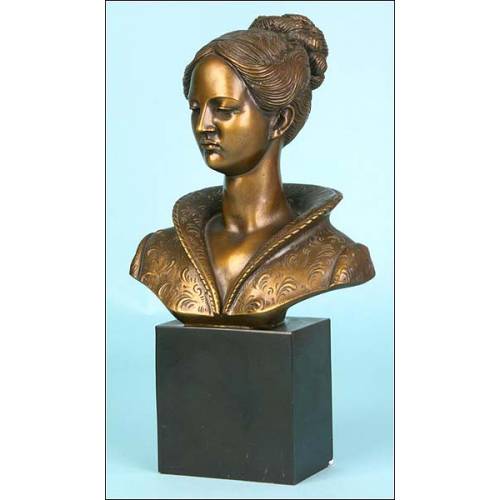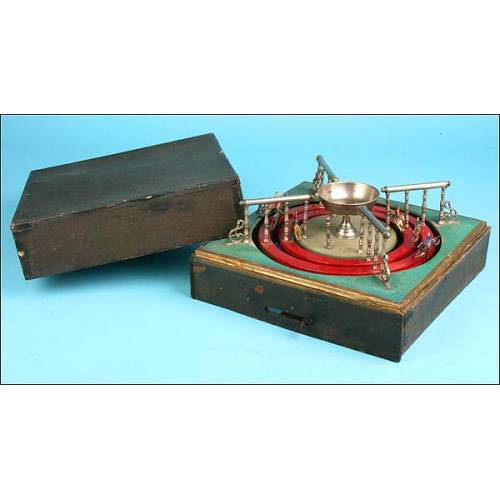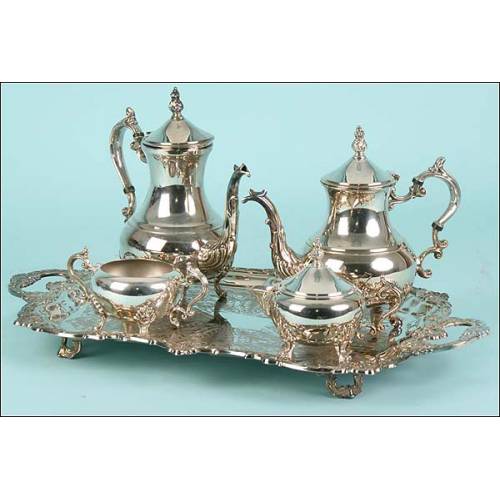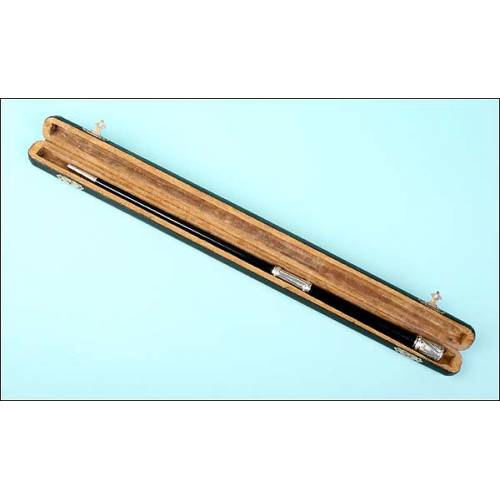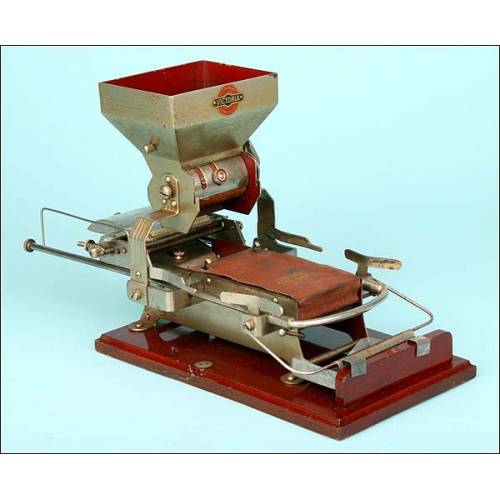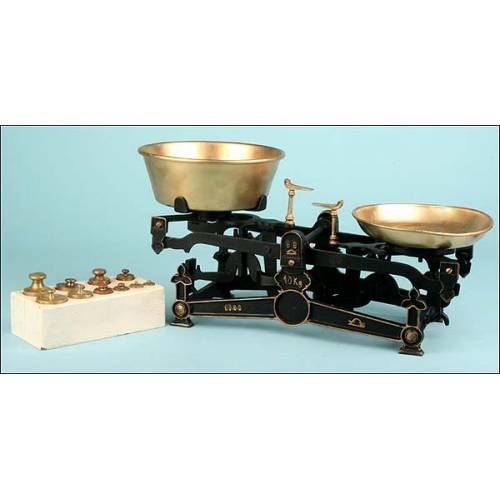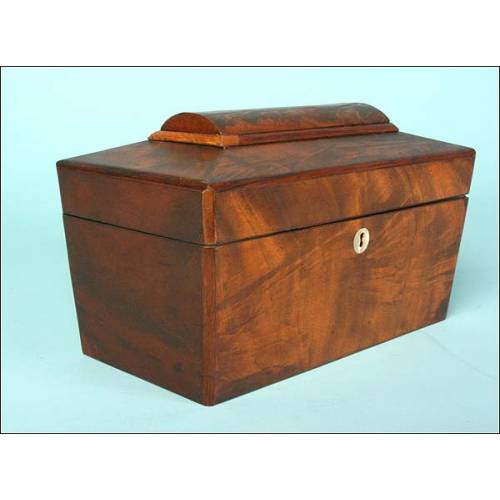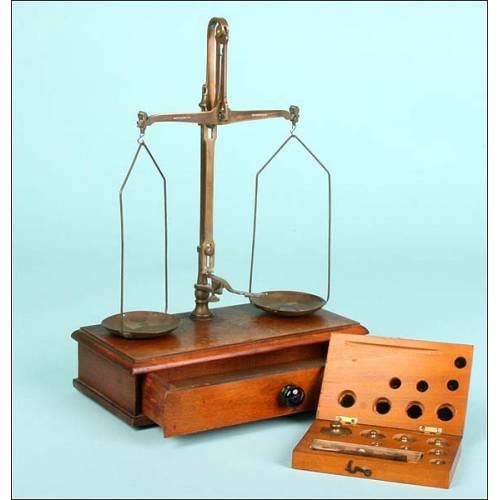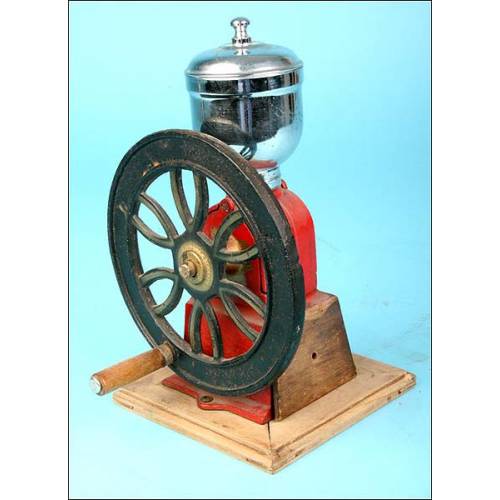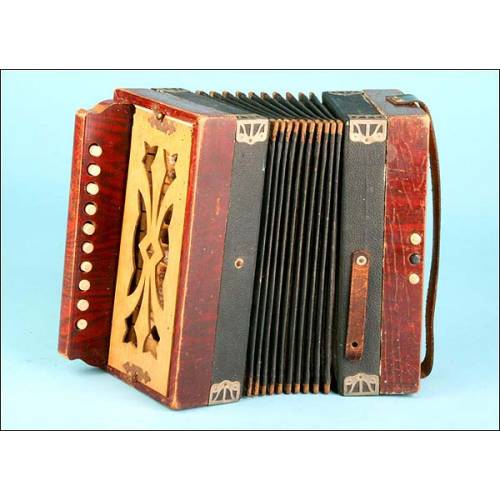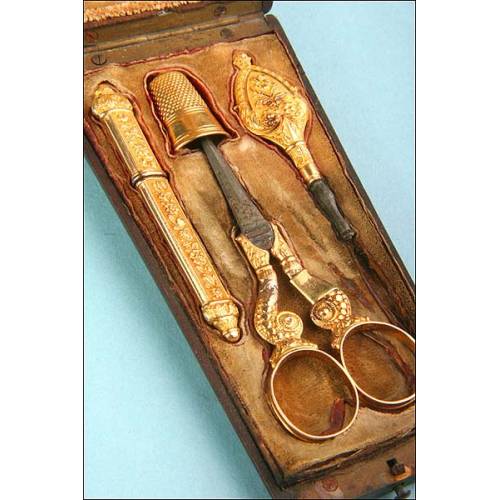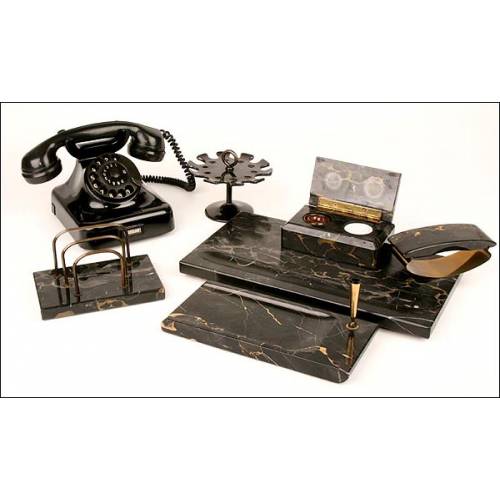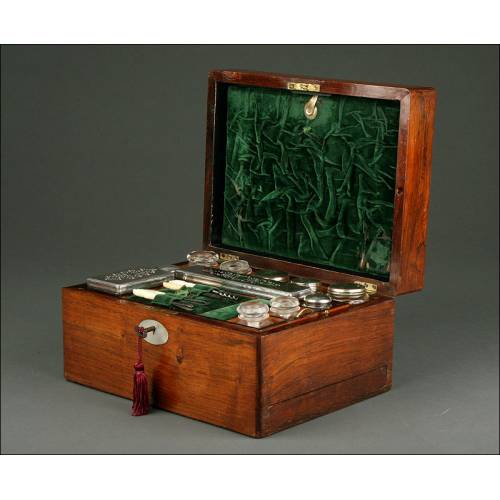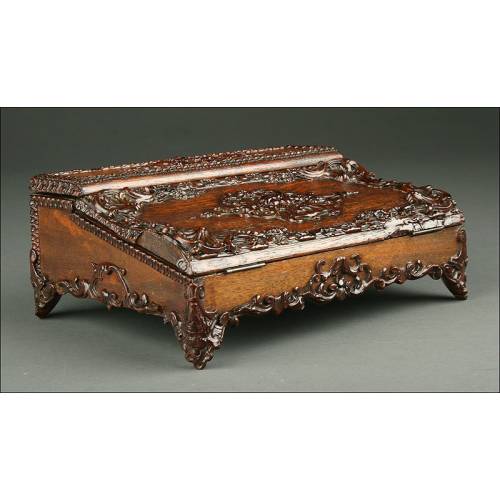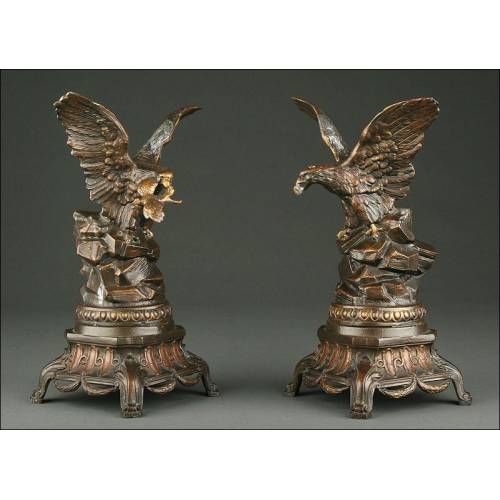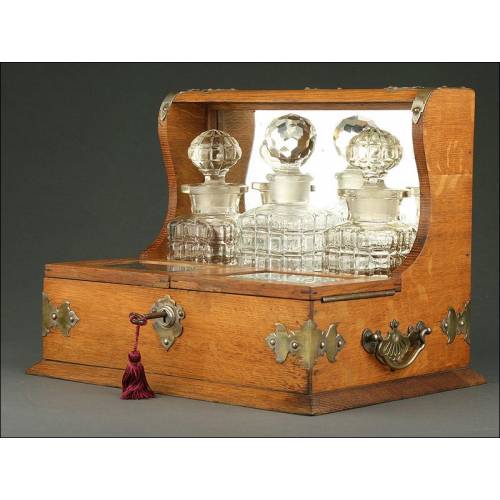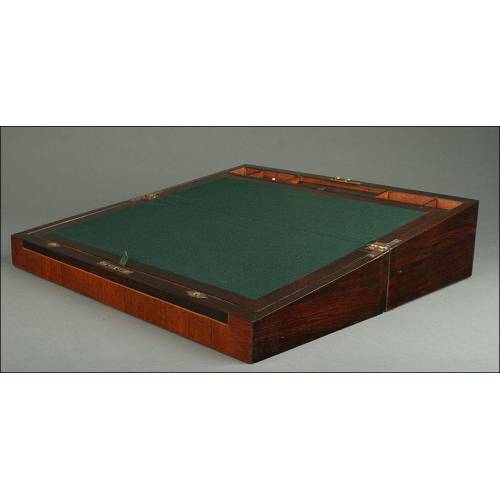J-471
English Trade Scale
English Trade Scale manufactured by W & T Avery Ltd.1920.
Sold!
English Trade Balance manufactured by W & T Avery Ltd in Birmingham about 1920. Complete!This is a genuine metal balance, seated on a rectangular base where both the two arms are arranged, as well as the different weights, located on the front. It consists of two equal arms, the right one formed by a metal bowl where you would place what you want to weigh, and the left one formed by a flat structure, which would be where the different weights would be placed to know the exact weight. On the front we find a complete set of weights ranging from 1 ounce to 14 pounds. They are distributed in two groups: 5 larger ones, equipped with a top ring for easy handling, and four smaller oval ones located on the right side, one on top of the other. The weights are complete! Something to keep in mind, as it is very common for some of them to get lost due to use. In addition, this fantastic scale is in a very good state of preservation, both aesthetically and functionally, so it can be used to give a nostalgic touch to a room or use it if desired.It should be noted that since the beginning of mankind, man has always sought ways to measure and weigh the goods, in order to carry out a fair barter as far as the distribution of food is concerned. When we talk about weight, the first thing we think of is a scale. This type of scale is perhaps the most commonly used, based on a balance between two arms. At its ends are placed two bases in which to put, in one the goods to be weighed, and in the other the weights to calculate its value. This type of object is very common to find in the antiques market, since many examples were made, although most of them do not have the weights, or not the original ones. This type of balance is still used in markets and markets around the world to weigh goods, so we can find examples of the most varied forms.W & T Avery Ltd. was founded in the 18th century by James Ford, although it would not take the name W & T Avery until 1818. The scale business expanded rapidly and by 1885 Ford owned three factories: Atlas in West Bromwich, Mill Lane in Birmingham and the Moat Lane in Digbeth. In 1891 the business became a Public Limited Company with a board of directors, and in 1894 it became a Public Limited Company with shares listed on the London Stock Exchange. Success continued for Ford, and in 1895 the company took over the Soho Foundry in Smethwick, thus also starting the steam engine business. At the turn of the 20th century the company specialized in the manufacture of weighing machines, becoming one of the most important in the industry. Although the company had difficulties during the two World Wars, it managed to stay afloat, although it could not compete against the new electronic weighing scales, and was finally acquired by GEC in 1979.Do not miss the opportunity to acquire one of the antique objects that still continues to perform its function today!Measures: 30,5 x 47 cm
